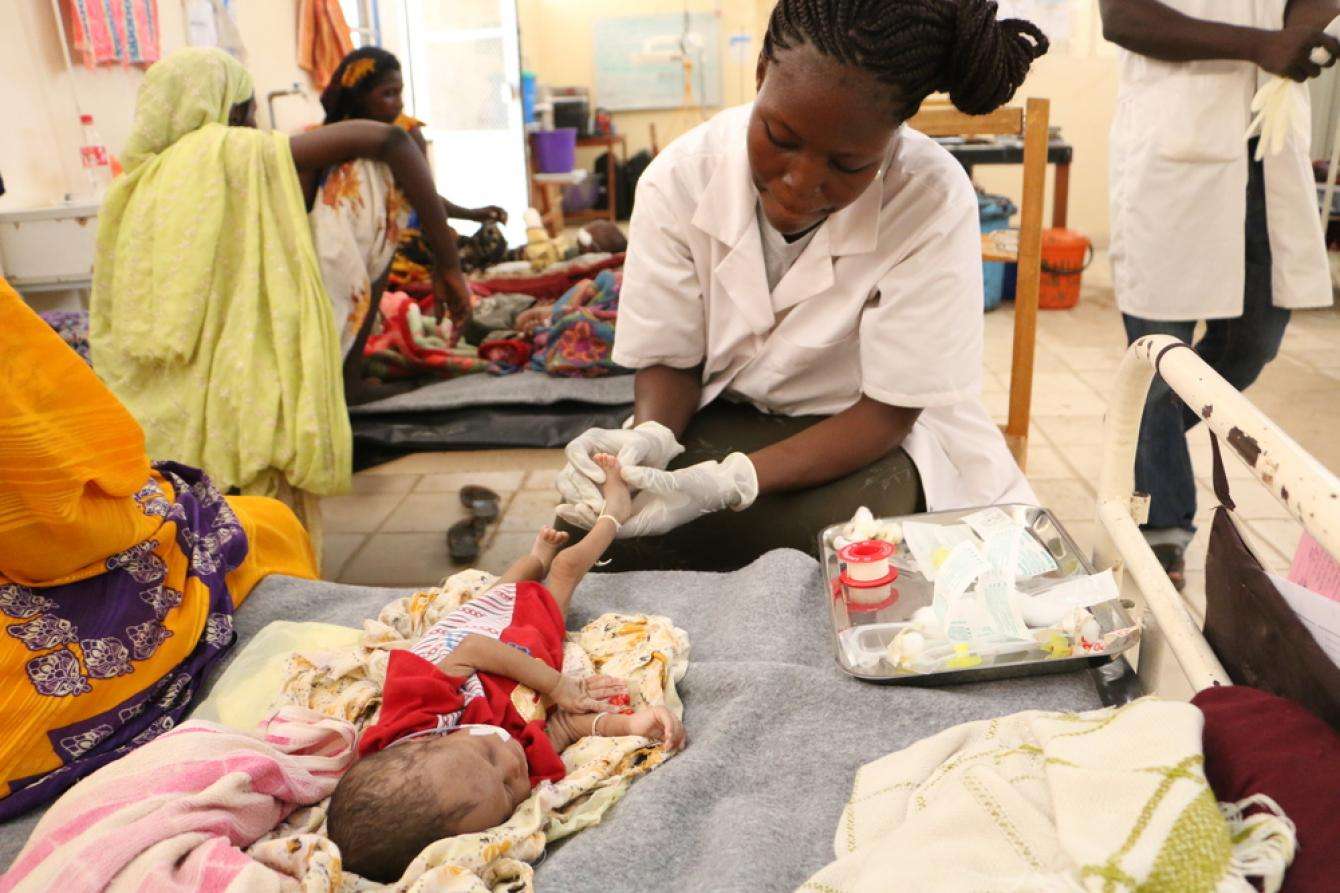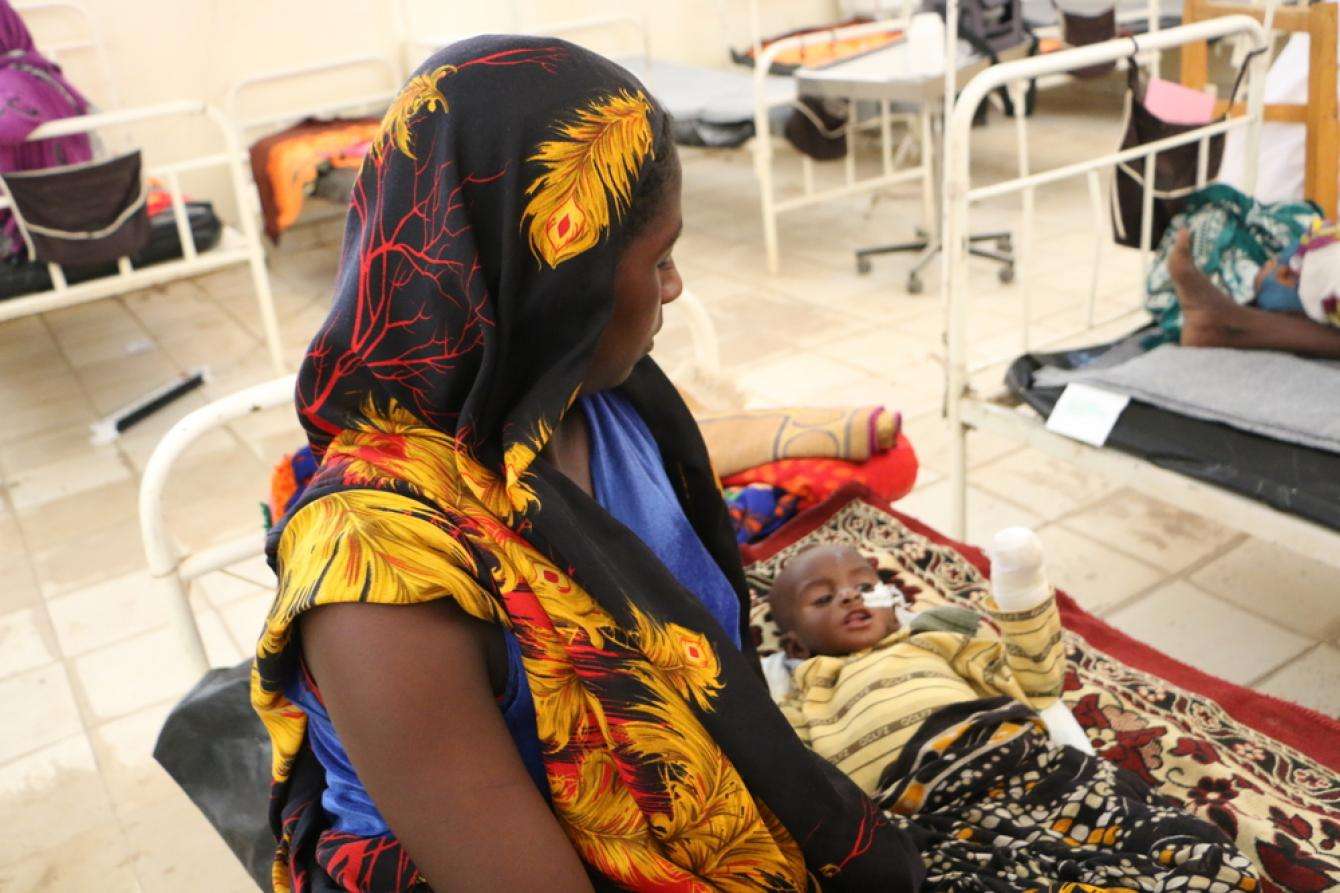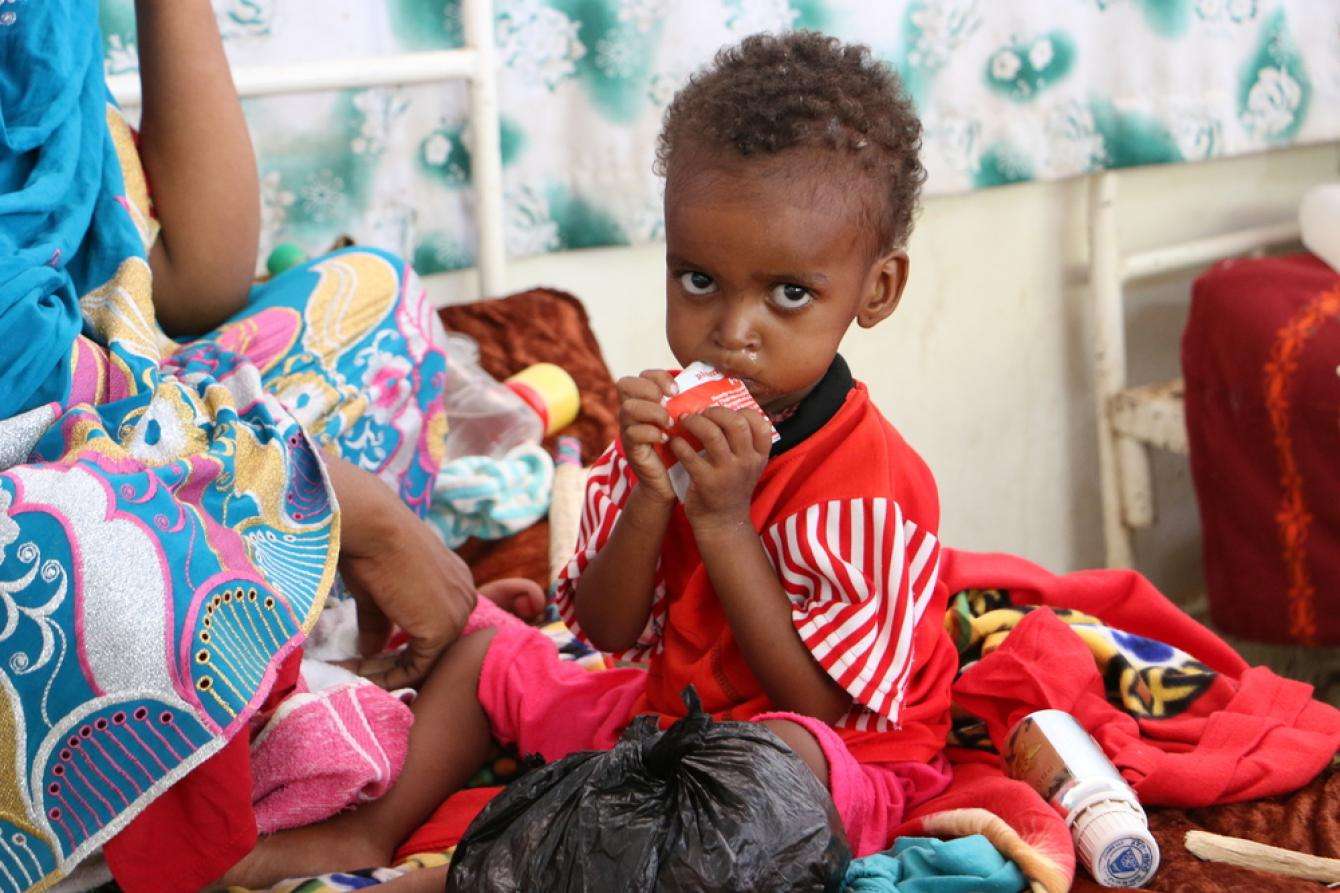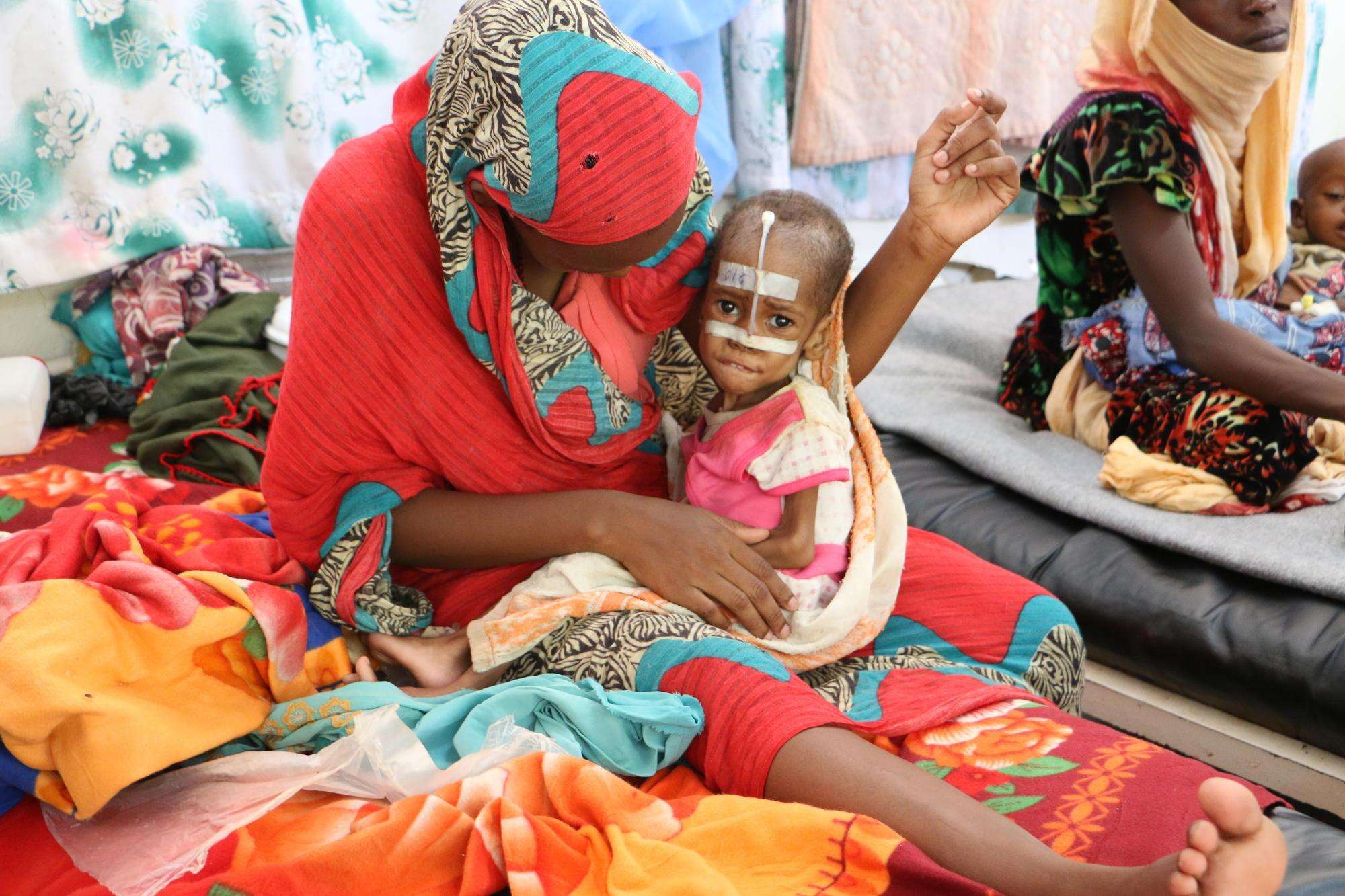In Chad, one child in seven dies before their fifth birthday. Malnutrition is one of the main causes of high child mortality in this central African country.
The food emergency is acute every year during what’s known as the lean season, a period from May to September when the combination of dry weather and low food stocks means hundreds of thousands of people across the Sahel region have very little to eat. The United Nations estimated that 900,000 people in Chad would be affected by severe food insecurity during this year’s lean season. Some experts say that the current lean season could be the worst in six years for Chad because of an early April start.
Treating the most vulnerable
Since 2006, Doctors Without Borders/Médecins Sans Frontières (MSF) has worked in eastern Chad at Am Timan hospital in the pediatric ward. This year, by the end of May, the nutritional feeding center run by MSF was already over its capacity of 60 beds, with 325 malnourished children admitted that month alone.

"Children arrive with critical health conditions, so compromised that often it’s too late to save them,” says Dr. Yannick Tsomkeng, an MSF doctor doing his morning medical consultations in the pediatric ward’s therapeutic feeding unit. “They’re the first victims of the lack of food, poverty, and dangerous nutritional habits.”
Nineteen-year-old Fanna struggles to feed her three children. “My boy was sick. He couldn’t eat at all, he kept on vomiting. After four days he was so weak that he couldn’t react, and I decided to bring him to the hospital. It’s hard to stay for several days, when there’s no one who can look after the other children,” Fanna says, holding her eight-month-old baby, Moussa, on a bed in the nutritional center.

Moussa’s feeding tube looks enormous on his gaunt face. He’s too feeble to cry but simply stares at the people around him, visibly in pain. He has been hospitalized due to severe malnutrition and complications.
“I knew there was a nutritional program in the hospital because my oldest daughter has been hospitalized before when she was malnourished,” says Fanna. “We eat once per day. The food is never enough, so my children get often sick. And now it’s even worse, since the harvest is over,” she says.
A cyclical crisis compounded
This food emergency is the result of several factors, including inadequate nutritional practices, climate change, difficulties with access to land and clean drinking water, and fragile health systems in a country in the midst of a deep economic crisis.
Twelve of the 23 regions in Chad have now been declared in a ‘nutritional emergency’ and the prevalence of severe acute malnutrition has exceeded the emergency threshold by 2 percent in 15 regions. The first victims of this cyclical nutritional crisis are inevitably the most vulnerable: children below the age of five.
A treatment plan built on nourishment and play
To treat severe malnutrition at the nutritional feeding center in Am Timan hospital, patients receive special food to help them recover appetite and responsiveness. They are fed therapeutic milk containing sugar, oil, and a high-protein peanut paste fortified with vitamins and minerals. The children admitted to this program have very low weight and severe muscle wasting. They may also have nutritional edema—characterized by swollen feet, face, and limbs. They will be discharged when they are able to eat again without medical assistance.

When these children reach a more stable level of health, MSF combines medical treatments with a daily session of cognitive stimulation. Severely malnourished children may have mental and behavioral developmental delays that, if left untreated, can become the most serious lasting consequence of malnutrition. Emotional and physical stimulation through play can significantly reduce the risk of mental deficiency and other irreversible effects of prolonged malnutrition. MSF teams organize a stimulation session every day with games designed for mothers and children undergoing nutritional treatment.

“We realize, day after day, how important play and maternal care are to the recovery process,” explains Aya Sonoda, MSF information and education coordinator in Am Timan. “During the stimulation sessions, mothers are encouraged to play with their children with toys and to interact with them in playful activities. The results of these activities is touching. We see children recovering their reactiveness and, above all, they smile and play again together. It’s so important to involve parents and to encourage the emotional care of children.”
MSF teams have been working in Chad for 37 years. We have an emergency response unit in the country, providing rapid response and delivering medical care in less than 72 hours. In Am Timan, in the region of Salamat, MSF supports maternity services, neonatology, and the nutrition program. In Moissala, in Mandoul region, MSF runs a program for the prevention, detection, and treatment of malaria among children and pregnant women. In the Eastern Logone region, MSF launched primary medical assistance activities serving Central African refugees and the local community.
To tackle the nutritional crisis during the lean season, MSF teams are supporting three health centers in Am Timan to screen and treat malnutrition. Our teams will be present until the end of October 2018 to treat malnourished patients with medical complications.
MSF also supports neonatology and maternity services for complicated deliveries in Am Timan hospital, with activities planned to continue until October 2018.




